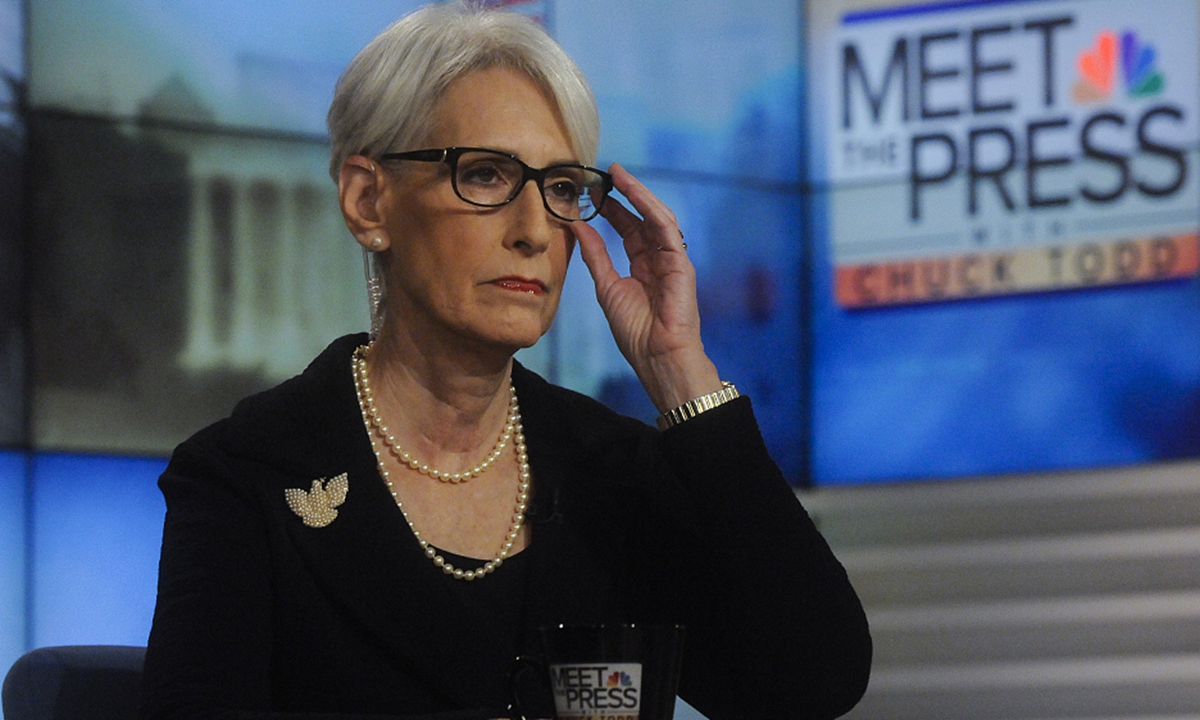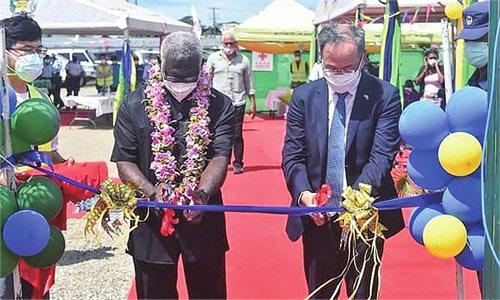US plans high-level visit to Solomon Islands in a political offensive to bully Pacific countries with colonialist mentality

Wendy Sherman photo:CFP
A high-level visit to the Solomon Islands led by US Deputy Secretary of State Wendy Sherman and newly appointed US ambassador to Australia Caroline Kennedy has reportedly been set for August, as more South Pacific countries display friendly cooperation with China.
The potential visit is also widely seen as part of stepped-up efforts by the US to reassert its involvement in the South Pacific to "compete for regional influence" with China, although experts do not see the prospect of this happening soon, given the politicization and weaponization instead of mutual benefits the US has aimed for, and the poor legacy the US has left in the region.
Caroline Kennedy, daughter of former US president John F. Kennedy, was sworn in as US ambassador to Australia on June 10 and arrived in the country to take up her post on Friday, ending an 18-month vacancy for a US ambassador to one of its closest allies. Kennedy will soon be on a visit to the Solomon Islands with Sherman, and meet with senior officials "to highlight the enduring relationship between the US and Solomon Islands," Reuters reported on Monday.
The US also plans to re-establish its embassy in the Solomon Islands, according to Reuters, which was closed in 1993 after the US downgraded its diplomatic presence in the country.
After many countries in the South Pacific region gave friendly signals to China and signed cooperation agreements, the US seems to be trying to eliminate the positive influence and practical help China has provided to the South Pacific - a region that is the focus of the US' newly released Indo-Pacific strategy.
When China signed a bilateral security agreement with the Solomon Islands in April, the US threatened to "respond accordingly."
That response is expected to be part of the conversation during Sherman and Kennedy's visit to the Solomon Islands, Chen Hong, president of the Chinese Association of Australian Studies and director of the Australian Studies Center at the East China Normal University, told the Global Times.
"The US is likely to conduct a political offensive to bully Solomon Islands officials and support some anti-China political forces, media and non-governmental organizations," Chen said. "This is the usual US ploy to create political pressure within other countries."
The new US Pacific islands initiative is a highly politicized and highly weaponized strategy that does not serve the interests of local people, but uses the South Pacific as a tool with a colonialist and imperialist mentality, he said.
"Unlike the US, the projects that China has invested in building are clearly showing positive results to all residents," Chen said.
"The local people and leaders are very aware of its essence," Chen said. "They will exercise political wisdom and independence to defend their own interests."
Chen also noted that the US nuclear tests previously conducted in the South Pacific caused great harm to the region, and that many residents are still negatively affected today. Their lingering negative feelings toward the US could also affect US attempts to re-engage in the region.
The visit to the Solomon Islands could be the beginning of a series of US moves in the Pacific, as Kennedy's arrival is an important symbol of US ambitions to make a comeback in the South Pacific, experts also noted.
"It's clear from Kennedy's actions right after she took office that she is on a mission that goes beyond just being ambassador to Australia," Chen said. "Through her, the US hopes to increase the divide between China and Australia and undermine cooperation between China and countries in the South Pacific."
Kennedy served as US ambassador to Japan before being appointed to Australia. Moving the former ambassador through the North and South Pacific is an important shaping for the US Indo-Pacific strategy, Chen said.
"Kennedy has experience working in Japan and understands the Asia-Pacific region. At the same time, the US expects her to exert her family's influence and exert control over Australia," Chen told the Global Times, noting that the US is concerned that Australia's policy toward China will have "deviations" that the US does not want.
However, like the Pacific island nations, Australia also knows the purpose behind the US move and will make independent decisions based on its own interests, he said.

